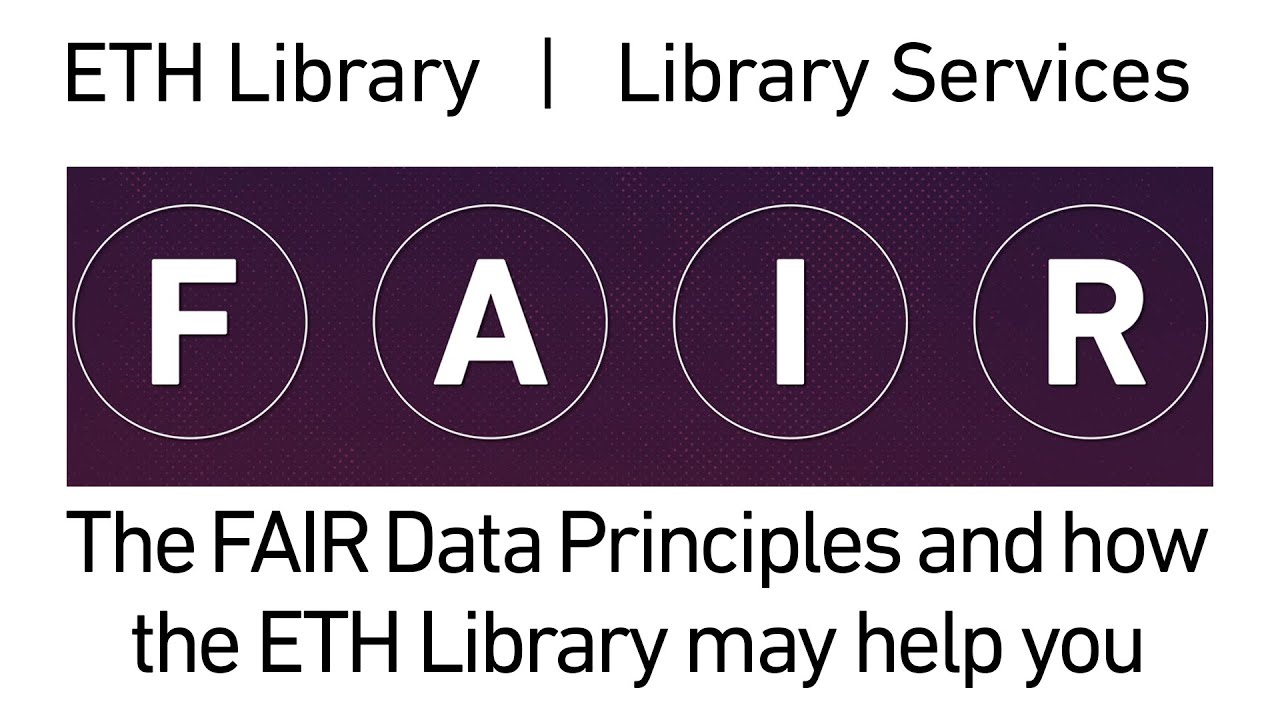Publishing and Preservation
Introduction
There are many good reasons to publish not only scientific results but also the actual research data underlying these results. By publishing research data in a citable form, you increase the visibility of your research. Furthermore, research funders and journals increasingly demand sharing of the data underpinning a publication. Published data should also be preserved for the long term to maintain their reusability. ETH Library staff offer support for every step required for efficient publishing and preservation of your data.
Even before you create your data, our team at Research Data Management and Digital Curation will be happy to advise you regarding file format questions and other aspects of data management and data publication, including the creation of a data management plan within the context of your research project.
Publishing Research Data
Publishing research data in a meaningful way requires that the history of their origin and processing has been properly documented right from the start of their creation and that this documentation is available together with the data. When publishing your research data you should follow the external pageFAIRcall_made (i.e. Findable, Accessible, Interoperable and Reusable) data principles that will ensure reusability and reproducibility of your research results in the future. Compliance with FAIR data principles is mandatory for many funding programs.

This depends strongly on your field of research and on existing requirements. ETH Zurich (see RDM Guidelines) as well as the SNSF, for example, requires you to make available at least data underlying a publication no later than at the time of publication. You may want to publish more data to allow data reuse and to ensure reproducibility. In fact, funders like the SNSF encourage this. However, always make sure that you are entitled to publish a certain data set, that data protection is respected, and be aware that data publication might impact the commercial exploitation of the data (e.g. patenting). When in doubt, consult ETH transfer.
Most data repositories either specialize in services for a certain scientific community or they are serving one institution. Only few are open to any kind of data and to researchers from any institution. The majority of subject-specific and institutional repositories are listed in the external pagere3data indexcall_made.
If community agreed formats and repositories are available, we recommend choosing those repositories for data publication. ETH Zurich offers the Research Collection as its own repository for the publication of research data and articles. It supports registration of Digital Object Identifiers (DOI) and can be used for both open as well as closed data. The Research Collection implements the external pageFAIR principlescall_made. A list of external pagerepositories recommended by the SNSFcall_made can be found on its webpage. One might also consider publishing the data in both a discipline-specific as wells as an institutional repository. This would make sense especially if the long-term sustainability of the discipline-specific repository is uncertain.
Preserving Research Data for the Future
Researchers at ETH Zurich are obliged to manage their data responsibly and in accordance with good scientific practice. "To ensure reproducibility, reliability and accuracy, the relevant research data and key materials on which the results of a publication are based, shall follow the FAIR principles" which is laid out in the ETH Zurich Guidelines on scientific integrity. Specific requirements and recommendations for research data management are defined in the Guidelines for Research Data Management at ETH Zurich.
If you deposit research data in the Research Collection, the data will be preserved by default in the ETH Data Archive through automatic data export (except for data deposited via Libdrive). However, you as the researcher are responsible for preparing the data for submission and preservation. Furthermore, it is important to choose the right file formats suitable for long-term usability where possible and appropriate. The staff at the Research Collection and at the ETH Data Archive will be happy to assist you with completion of these tasks (see contact details below).
Links to services at ETH Zurich
- Research Collection
- Research Data Management and Digital Curation and ETH Data Archive
- E-Publishing Office (Open Access to Publications)
- Docuteam packer (local editor for preparing “small data” collections for archiving)
- Storage services @ ETH IT Services – please contact your IT Support Group first
